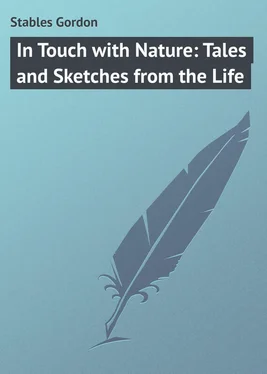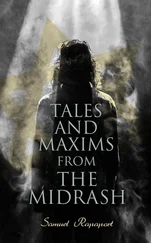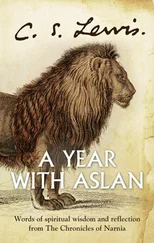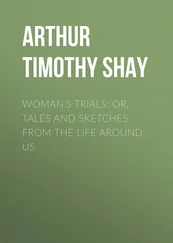Gordon Stables - In Touch with Nature - Tales and Sketches from the Life
Здесь есть возможность читать онлайн «Gordon Stables - In Touch with Nature - Tales and Sketches from the Life» — ознакомительный отрывок электронной книги совершенно бесплатно, а после прочтения отрывка купить полную версию. В некоторых случаях можно слушать аудио, скачать через торрент в формате fb2 и присутствует краткое содержание. Жанр: foreign_prose, на английском языке. Описание произведения, (предисловие) а так же отзывы посетителей доступны на портале библиотеки ЛибКат.
- Название:In Touch with Nature: Tales and Sketches from the Life
- Автор:
- Жанр:
- Год:неизвестен
- ISBN:нет данных
- Рейтинг книги:4 / 5. Голосов: 1
-
Избранное:Добавить в избранное
- Отзывы:
-
Ваша оценка:
- 80
- 1
- 2
- 3
- 4
- 5
In Touch with Nature: Tales and Sketches from the Life: краткое содержание, описание и аннотация
Предлагаем к чтению аннотацию, описание, краткое содержание или предисловие (зависит от того, что написал сам автор книги «In Touch with Nature: Tales and Sketches from the Life»). Если вы не нашли необходимую информацию о книге — напишите в комментариях, мы постараемся отыскать её.
In Touch with Nature: Tales and Sketches from the Life — читать онлайн ознакомительный отрывок
Ниже представлен текст книги, разбитый по страницам. Система сохранения места последней прочитанной страницы, позволяет с удобством читать онлайн бесплатно книгу «In Touch with Nature: Tales and Sketches from the Life», без необходимости каждый раз заново искать на чём Вы остановились. Поставьте закладку, и сможете в любой момент перейти на страницу, на которой закончили чтение.
Интервал:
Закладка:
Gordon Stables
In Touch with Nature: Tales and Sketches from the Life
Chapter One.
Rowan-Tree Cottage
“The merry homes of England!
Around their hearths by night,
What gladsome looks of household love
Meet in the ruddy light!
There, woman’s voice flows forth in song
Or childhood’s tale is told,
Or lips move tunefully along
Some glorious page of old.”
“You’re my Maggie May, aren’t you?”
There was a murmured “Yes,” and a tired and weary wee head was laid to rest on my shoulder.
We were all sitting round the log fire that burned on our low hearth, one wild night in winter. Outside such a storm was raging as seldom visits the southern part of these islands. It had been hard frost for days before, with a bright and cloudless sky; but on the morning of this particular day the blue had given place to a uniform leaden grey. The cloud canopy lowered, the horizon neared, then little pellets of snow began to fall no larger than millet-seeds, till they covered all the hard ground, and powdered the lawn, and lay on the laurel-leaves, and on the ivy that the sparrows so love. Gradually these pellets gave place to broad dry flakes of snow.
“How beautiful it was, falling so silently all day long,
All night long, on the mountains, on the meadows,
On the roofs of the living, on the graves of the dead.”
Yes, silently it had come down, and by sunset it was some inches deep on every tree; and very lovely were the Austrian pines and spruce-firs on the lawn, with their branches bending earthwards under their burdens of snow.
But later in the evening a change had come over the spirit of the scene, and a wild wind had begun to blow from the east. It blew first with a moaning, mournful sound, that saddened one’s heart to listen to; but soon it gathered force, and shrieked around the cottage, and tore through the leafless branches of the tall lime-trees with a noise that made both Frank and me think of gales and storms in the wide Atlantic.
Little Ida, our youngest tottie, was sitting on the hearth painting impossible birds of impossible colours, and using Sir John the Grahame’s back as an easel. She shook her paint-brush at me as she remarked seriously, “She is my Maggie May, and ma’s Maggie May, and Uncle Flank’s Maggie May, and Sil John the Glahame’s Maggie May.” My wife looked up smiling from her sewing.
“Quite right, child,” she said, “she is all our Maggie Mays.”
“O! ma,” remonstrated Ida, “that’s not dood glammer. There touldn’t be two Maggie Mays, tould there, pa?”
“Quite impossible,” I replied; “but how would you say it?”
“I would say – ‘She is all of us’s Maggie May .’”
Having put our grammar to rights, Ida went quietly on painting.
Maggie May, it will be gathered from the above, was a pet in the family circle: she certainly was at present, though not the baby either.
The facts of the case are as follows: Maggie May was an invalid. Not very long before this she had been lying on a bed of pain and illness, from which none of us had expected to see her rise. She was but a fragile flower at the best, but as her recent indisposition had been partly attributable to me, I had tenfold interest in getting her well and strong again.
It happened thus: our bonnie black mare Jeannie has been allowed to have a deal of her own way, and never starts anywhere till she has had a couple of lunch biscuits and a caress. After this she will do anything. I had driven the two girls over to a farm about eight miles from our cottage, and on the way back had occasion to call on a friend. “Stand quiet,” I said; “Jeannie, I won’t be long, and I’ll bring you a biscuit.” Jeannie tossed her tail and moved her ears knowingly as much as to say, “All right, master. Don’t forget. A bargain is a bargain.”
But woe is me! I did forget, completely; and when I jumped into the phaeton Jeannie refused to budge.
Well, I suppose I lost my temper. I flicked her with the whip. Then the mare lost hers. She screamed with rage, and next moment she was tearing along the road with the bit in her teeth at a fearful speed. All my efforts to control the speed of the runaway were in vain. Little Ida clung in terror to me; Maggie May sat firm, but pale.
On we rushed, luckily meeting nothing on the road. A whole mile was speedily pat behind us. But half a mile further on was the dismal dell called Millers’ Dene, with the descent to it dangerous even at a walking pace. To attempt to take it, at the rate we were now moving, would be certain destruction. Could I check the mare before we reached the brow of the hill? I tried my utmost, but utterly failed.
Then my mind was made up. There were broad hedges at each side of the road, and no ditch between.
Summoning all my calmness and strength then, for a supreme effort, and just as we had reached the end of the level road, and the dreadful dene (a glen or ravine) lay deep down before us, with a sudden wrench I swerved the mare off the road and put her at the hedge.
It was a desperate remedy, but so far successful, and the only one really hurt was poor Maggie May.
It was one of those adventures one never forgets.
The child had received a terrible shock, and for weeks hovered ’twixt death and life. No wonder then that we made much of her, now we had her back amongst us once again; and that each of us did our best to nurse back the life and joy she had been almost bereft of for ever.
This needed all the more care, in that the shock had been purely nervous, and her mind, always sensitive, sympathised with her body.
Very pleasant, quiet, and delightful were the evenings we now spent at Rowan-Tree Cottage. We cared very little to-night, for instance, for the wild wind that was raging without, albeit we sometimes thought – not without a kind of shudder – of sailors far at sea, or of travellers belated in crossing the moors.
Uncle Frank – as we all called him – and I had constituted ourselves the story-tellers at these little fireside reunions. A right jolly, jovial sailor was Frank, with a big rough beard, tinged with grey, a weather-beaten face as brown as the back of a fiddle, and blue eyes that swam in fun and genuine good nature.
Frank had been everywhere by sea and land, and I myself have seen a bit of the world. It would have been strange indeed, then, if we could not have told stories and described scenes and events, from our experience, that were bound to interest all who listened.
Sometimes these experiences would be related in the form of conversations; at other times, either Frank or I had written our stories, and read them to our little audience.
Stories were interspersed with songs and the music of the fiddle. Frank was our sweet singer for the most part; he was also our musician. Flaying, however, on his part was never what you might call premeditated; something in the air, you might say, or in the state of our feelings, rendered music at times a necessity; then Frank would take up his instrument as quietly and mechanically as if it had been that meerschaum of his which, being a sailor, he was allowed to smoke.
Now, in the evenings, with his fiddle in his hand, Uncle Frank was simply complete. “An accomplished player?” did you ask. Perhaps not; certainly not what is called a trick-player. But the fiddle – O! call it not a violin – the fiddle when in Frank’s hand spoke and sang . They say that a good rider ought to appear part and parcel of the horse he bestrides. Frank seemed part and parcel of the instrument in his grasp. Bending lovingly over it, his brown beard floatingly on its breast, while he played, the fiddle verily seemed inspired with Frank’s own feelings and genius. And while you listened to the melting notes of some old Irish melody, the green hills of Erin would rise up before your mind’s eye, and the fiddle sang to you of the sorrows of that unhappy isle. Or the strains carried you away back through the half-forgotten past, to the days of chivalry and romance, when —
Читать дальшеИнтервал:
Закладка:
Похожие книги на «In Touch with Nature: Tales and Sketches from the Life»
Представляем Вашему вниманию похожие книги на «In Touch with Nature: Tales and Sketches from the Life» списком для выбора. Мы отобрали схожую по названию и смыслу литературу в надежде предоставить читателям больше вариантов отыскать новые, интересные, ещё непрочитанные произведения.
Обсуждение, отзывы о книге «In Touch with Nature: Tales and Sketches from the Life» и просто собственные мнения читателей. Оставьте ваши комментарии, напишите, что Вы думаете о произведении, его смысле или главных героях. Укажите что конкретно понравилось, а что нет, и почему Вы так считаете.












